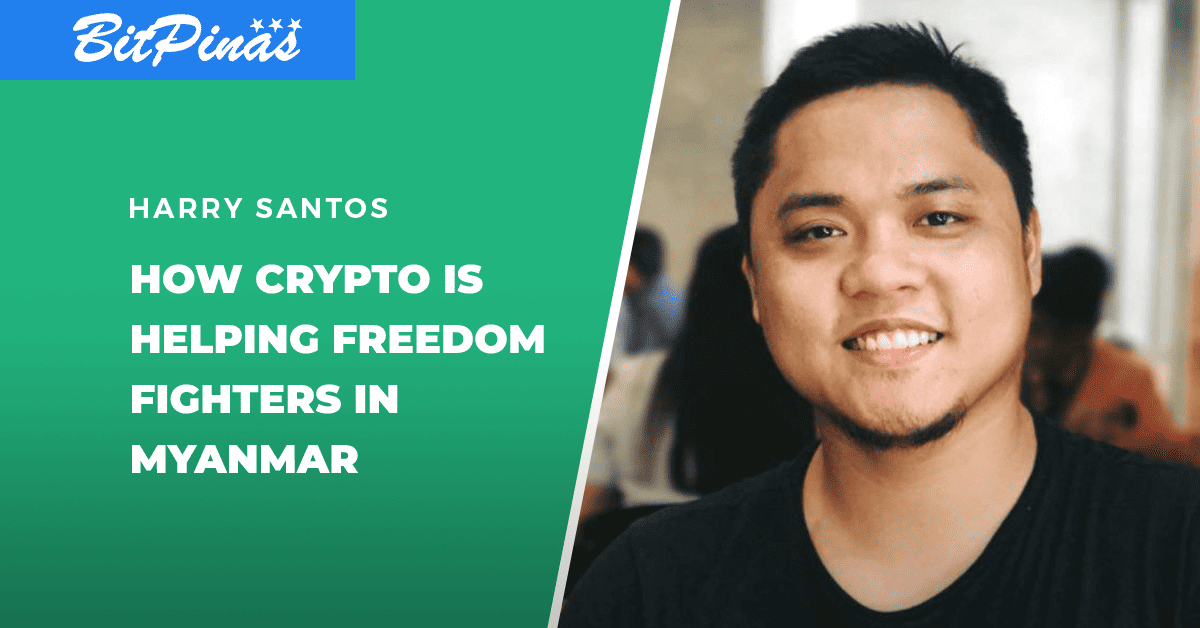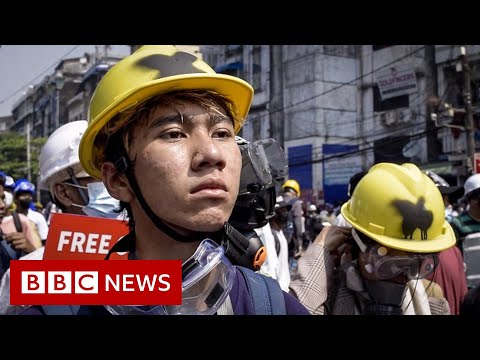How Crypto is Helping Freedom Fighters in Myanmar
The freedom to access and move one’s money is as important as freedom of speech.

Originally published Dec. 25, 2021
In 2013, you may remember the late Anthony Bourdain’s new show on CNN, Parts Unknown, and their pilot that celebrated the democratization of Myanmar after almost half a century of being under authoritarian military rule.
Less than a decade later, the country’s military have forcefully seized power yet again, discrediting an 83% landslide win of the opposition as fraudulent and ushering in violent protests that have resulted in over 1,000 killings, many of whom are young activists.
Harry Santos has had a decade of digital marketing experience working for major global brands and FMCGs and is currently working for a local fintech startup. He’s been a big advocate of cryptocurrencies and got into the space back in 2013.
Freedom of money movement is as essential as freedom of speech
During the protests in Hong Kong against mainland China, popular opposition publication Apple Daily had to shutdown—not after their chief executives were arrested and even threat of arrests to employees — it was because their assets were frozen and they didn’t have access to sustain operations.
The freedom to access and move one’s money is as important as freedom of speech. And in a revolution, money and funding is a necessity. You have people to feed, wounded protestors you need to attend to, essential supplies you need to procure, etc.
With the example of the publication in Hong Kong shutting down, we see that governments’ and central banks’ abilities to control and freeze access to our money is dangerously excessive power.
This is where crypto comes in
Myanmar’s shadow government announced they are now using the stablecoin Tether ($USDT) for fundraising and as currency. A stablecoin is essentially just a cryptocurrency that should be backed by fiat currency like the USD 1:1 to avoid volatility swings, making it more ideal for payments and money transfer.
I do need to mention that Tether is notorious and controversial at best for not being transparent with proving they do have the assets to ensure the 1:1 ratio, among other issues. We can only guess why they chose Tether. Perhaps it was just the easiest for them to procure and raise funds with?
Personally, I’d prefer they used Bitcoin, although having a bad rep for usability in payments, and its Lightning Network which is actually already being used in El Salvador (a country that interestingly also had a history with junta governments).
The use case for freedom
The same time in 2013 when I watched that Bourdain episode on Myanmar was around that time I joined one of the first Bitcoin meet-ups here in Manila. It was also the same time when the financial crisis of Cyprus was going on and their government were freezing assets of ordinary citizens. The intimate event attended by only a handful of people was documented by a fellow attendee on Reddit here.
I was part of the libertarians noted in that summary and the promised use case of taking power away from a few and giving it back to the people is actually what got me into crypto to begin with and I believe we’ll be witnessing even greater and more successful use cases for freedom within the next decade.
Checkout and follow our new crypto podcast on Spotify:
This article is contributed by Harry Santos to BitPinas: How Crypto is Helping Freedom Fighters in Myanmar






